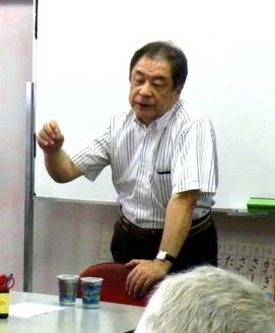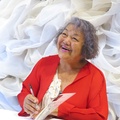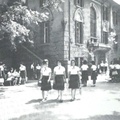Moving to Brazil after the Lehman Shock
[Fukazawa] When did you come back to Brazil?
[Shimano] That was in 2009, after the Lehman shock.
[Fukazawa] I went to Japan when I was 10 years old, in 1995. I stayed in Japan for about 15 years and came back when I was 25. I worked in Japan for quite a while.
[Shimano] Yes, from April 2003 to September 2009.
[Nagai] Did you do anything other than 3M?
[Shimano] Yes, other than 3M, I also worked at a temp agency for a little over a year. After that, I worked as a clerk at a car sales, or rather a used car sales company, for a year, and then I was hired as a contract employee in the Exchange and Cooperation Division at the Nagoya International Center, where I support foreign children. I worked there for a little over a year.
[Fukasawa] The salary isn't good for contract employees, is it?
[Shimano] That's right.
[Fukazawa] Why did you decide to return to Brazil?
[Shimano] I guess it's my own country after all. I wanted to go back ever since I went to Japan in 1995. I wanted to go back to my own country. I ended up in Japan for various reasons, but deep down I wanted to go back.
[Fukasawa] Did you want to go back because you wanted to study, or did you have some kind of goal?
[Shimano] That was one reason. I wanted to graduate from university.
[Fukazawa] Do you think you can go to university in Japan?
[Shimano] Yes, in Japan. I don't know about now, but back then, there were very few night schools in Aichi Prefecture.
[Fukasawa] I don't hear of any night schools.
[Nagai] It's just disappeared. It's getting smaller and smaller.
[Fukasawa] Is it possible only if you work during the day and go to university at night?
[Shimano] It was completely impossible. I didn't have anyone to support me.
[Fukazawa] If I were to go to university, the most realistic option was to come back to Brazil and go.
[Shimano] My plan was to save up some money, come back to Brazil and go to university.
[Fukazawa] I see. Why did you decide to study law in college? Did you have any difficulties with law in Japan?
[Shimano] It wasn't that I struggled, but when my mother passed away, I had some legal issues, and I also had to deal with my father in Brazil, so I decided to pursue a career in law. But I think the biggest catalyst was meeting Professor Masato Ninomiya in Japan.
[Fukasawa] I see.
[Shimano] I thought I wanted to become a person like that. Someone who can speak two languages and can be a bridge between Japan and Brazil. When I saw Ninomiya-sensei, I felt that he was a person with great power. He was a great presence, very charming.
[Fukasawa] Hmm.
[Shimano] Well, I went into law.
[Fukazawa] I see. So you have to come back here and transfer your Japanese diploma here.
[Shimano] Yes.
[Fukazawa] It went smoothly. It wasn't like I had to redo it with Super Chivo, I just rewrote it like that.
[Shimano] I had graduated from high school in Japan, so I translated my graduation documents and submitted them to the São Paulo City Education Department. That was OK.
[Fukasawa] Did you take the normal university entrance exam and get in?
[Shimano] That's right.
University entrance exams in Brazil
[Fukazawa] You had studied in Japanese all the way up to high school, and then you suddenly enrolled in a university in Brazil, so it must have been difficult for you to understand the Portuguese used in class.
[Shimano] Yes.
[Fukasawa] It must have been difficult to adapt to that.
[Shimano] Hmm, I wonder.
[Fukasawa] Was it that difficult?
[Shimano] Yes, that's right. It was more difficult getting used to the "Brazilian style" than the language.
[Fukasawa] For example?
[Shimano] It's pretty messy, isn't it, everyone?
[Fukasawa] Ah.
[Shimano] In Japan, everyone is so neat and tidy.
[Fukasawa] What's your blood type?
[Shimano] Ah, I'm type O (laughs). I'm basically a rough person (laughs). I think everyone is different. I'm not very good at socializing. When I was a university student, I only had one friend.
[Fukasawa] I see.
[Shimano] I did it mostly by myself.
[Fukazawa] When you came back here, your father and other relatives were there, right?
[Shimano] Because my father lived in Maringa, Paraná state.
[Fukazawa] It's far away. Why did you come to Sao Paulo instead of going to Maringa?
[Shimano] I went to Maringa once, but there were no jobs and there wasn't a good university, so I came to São Paulo by myself.
[Fukazawa] Wasn't studying at university difficult?
[Shimano] Yes, it was difficult. But it's not that "Portuguese was difficult," it was the legal terminology and understanding it that was difficult. Even while I was in Japan, I kept watching Brazilian news, reading newspapers, magazines, etc. So I was using Portuguese.
[Fukazawa] But you didn't study Portuguese in Japan, did you? You taught yourself by reading books, right?
[Shimano] Yes.
[Fukasawa] Was there anything you had to re-study at university?
[Shimano] I lived in Brazil until I was in the fourth grade of elementary school, so I had mastered reading and writing Portuguese. I just maintained that for 15 years. In college, it was really hard to remember the large amount of legal terminology.
[Fukasawa] When did you pass the OAB (Attorney at Law) exam?
[Shimano] Before graduating from university.
[Fukasawa] How many years?
[Shimano] 2014.
[Fukazawa] I came back in 2009. Five years after I came back! That's amazing, that's how straight I got.
[Shimano] Yes.
[Fukazawa] I now work at PineiroNet, a major law firm that Brazil is proud of.
[Shimano] That's right. There aren't many lawyers who can read and write Japanese. I guess it's rare.
[Fukazawa] So there are people who can speak Japanese, but no one who can read or write it?
[Shimano] No one. There are almost no people I can exchange emails with.
[Fukazawa] But is there really a demand for that? A demand for Brazilian lawyers who can speak Japanese?
[Shimano] Well, small and medium-sized businesses are necessary.
*This article is reprinted from the Nikkei Shimbun (August 22nd and 23rd , 2018).
©2018 Masayuki Fukasawa / Nikkey Shimbun







